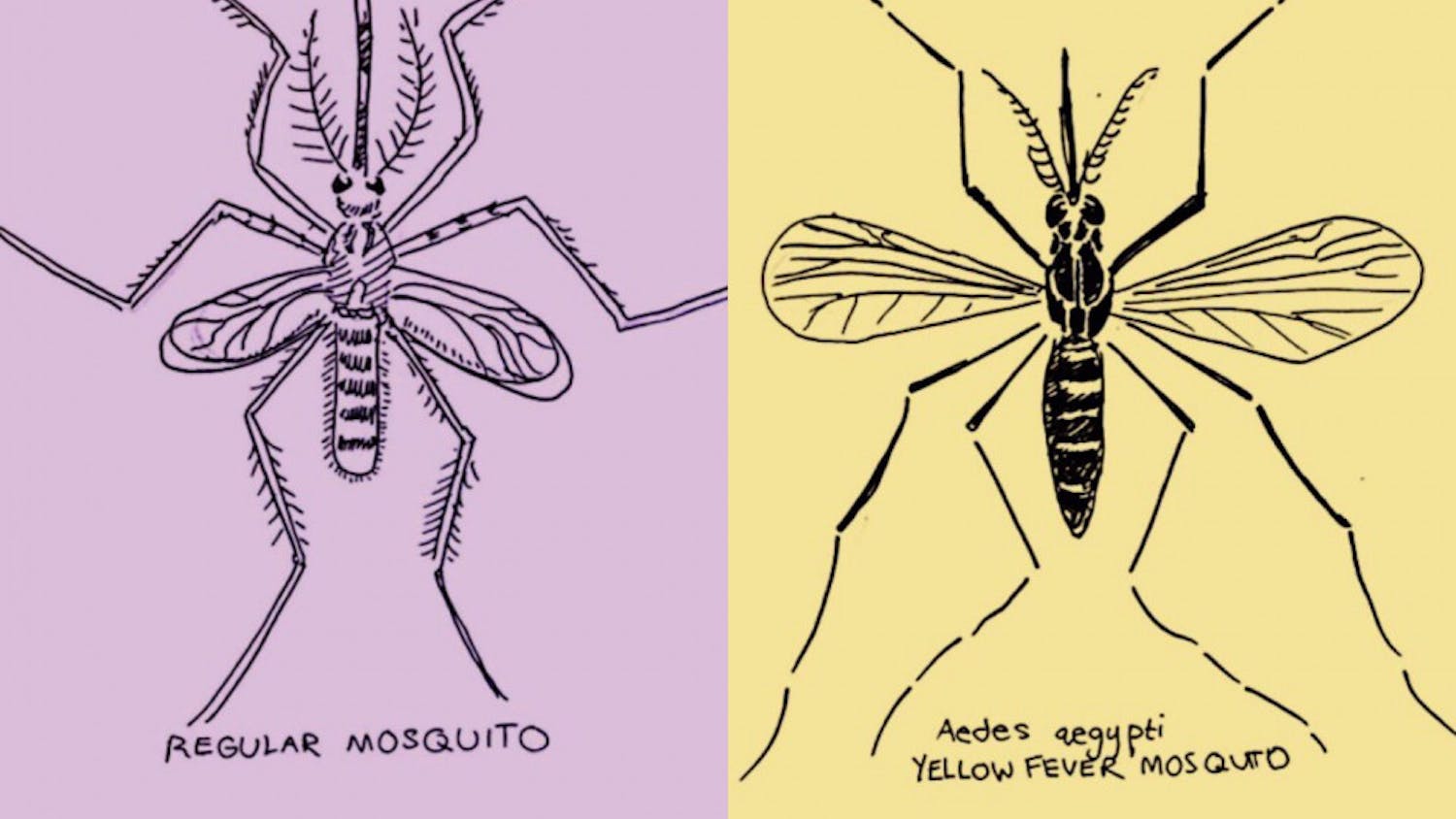Key West may become host to an experiment that involves male mosquitoes, the herpes virus and cabbage DNA.
The proposed experiment is an effort to combat the presence of an invasive mosquito species from Africa — Aedes aegypti. These fuzzy bastards recently started migrating into tropical areas outside of Africa. What’s really worrisome is that these mosquitoes are highly effective at spreading nasty viruses that cause chikungunya and dengue fever, a disease so painful it’s frequently nicknamed “break-bone fever.”
This is the proposed plan undergoing review by the FDA: release millions of genetically modified mosquitoes into the environment. Said genetic modifications include bits of the herpes simplex virus and genes from cabbage plants which — apparently — will have the effect of killing the larvae produced from any union between a modified and a wild mosquito.
Understandably, folks aren’t taking too kindly to the idea of having millions of mutated, bloodsucking insects in their neighborhoods. When worded like that, it’s a terrifying thought. Mixed with strong anti-GMO sentiments, it shouldn’t come as a surprise people are opposed. A petition on Change.org against the experiment has been signed by more than 140,000 people.
But unless you can’t bring yourself to compromise on the GMO issue, this really shouldn’t be too much of a problem. Oxitec, the company producing the strain of mosquitoes, is a group of Oxford University researchers who started the biotechnology group to combat disease. They’re not exactly Monsanto; it isn’t as if they’re going to use altered mosquitoes to aggressively secure an empire in the agriculture industry.
Beyond reflexive resistance to genetic modification, opposition to the plan centers on a few points, namely: What happens when a GM mosquito bites a person?
Chances are, it won’t have any effect. Oxitec is banking on the fact that only female mosquitoes suck blood, so only males of the GM variety will be released into the wild. They’ll make sweet mutant love to the females, and, if everything goes as planned, all of their kids will die and nobody’s blood will get sucked by mosquitoes that also have herpes.
We’re no biologists, but we figure it’s pretty difficult to spot balls on an animal that’s less than one-tenth of an inch long. Multiply that number by several million, and Oxitec’s claim starts to seem pretty presumptuous. But whatever — reviewing claims such as this is the reason the FDA exists in the first place, and it’s not like these bugs are radioactive.
Oxitec has tested this same procedure before. A trial in the Cayman Islands reduced the population of the species by 80 percent; Brazil had a successful test, too. Both want more of Oxitec’s mosquitoes.
All other options for eradicating mosquitoes won’t work in the long run. They quickly become resistant to pesticides, and killing them one at a time just isn’t practical.
What we have, then, is a good idea that just needs better marketing, and maybe some more testing.
[A version of this story ran on page 6 on 1/27/2015 under the headline “Key West mosquito test backlash really bites"]





